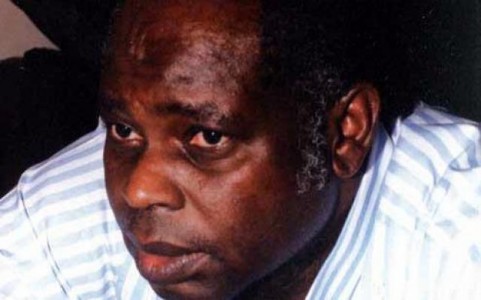
The Nigerian child’s health is the first casualty of President Jonathan’s sympathy for corruption.
Nigeria this week began to feel the full impact of the diplomatic row it sparked with the United States after pardoning corrupt ex-convicts and a rapist. And the health of the Nigerian child is the first casualty.
The first backlash has taken full effect as America’s richest man, Bill Gates, on Monday, arrived Ghana in a trip that would have seen the billionaire stop by Nigeria to meet President Goodluck Jonathan, and other officials concerning the aggressive polio eradication campaign his Bill and Melinda Foundation is undertaking in Nigeria.
“I arrive in Ghana today to see firsthand why the country’s immunization system is working so well and meet the people involved,” Mr Gates wrote in a website in which he is keeping personal notes.
Mr. Gates was due in Nigeria March 27-28, after his visit to neighbouring Ghana, but called off the trip two-day trip after the U.S. government expressed disappointment with Nigeria for pardoning convicted money launderers and warned it might cut aid meant for the country.
Although diplomatic sources told PREMIUM TIMES the American billionaire decided to stay off Nigeria in response to Mr. Jonathan’s pardoning of corrupt officials, Mr. Bill’s office has maintained the trip was put off due to a change in his schedule.
Nigeria’s President Jonathan stirred local and international discontent after he granted state pardon to his former boss and ex-Bayelsa State Governor, Diepreiye Alamieyeisegha.
The former governor, wanted in United Kingdom for money laundering, and convicted here for embezzling state funds while he was Bayelsa Governor, was pardoned alongside another convict and former head of the Bank of the North, Shettima Bulama.
Mr. Bulama, like Mr. Alamieyeisegha, was investigated and later prosecuted for corruption by the Economic and Financial Crimes Commission, EFCC.
The controversial pardon granted Messrs Alamieyeseigha and Bulama sparked diplomatic row between Nigeria and the United States, with the Americans threatening to punish Nigeria over Mr. Jonathan’s action.
“We see this as a setback for the fight against corruption, and also for our ability to play the strong role we’ve played in supporting rule of law and legal institution-building in Nigeria, which is very important for the future of the country obviously,” State Department spokesperson, Victoria Nuland, had told reporters in Washington.
“We have made clear to the Nigerians that this puts a question mark on the kinds of work that we’ve been trying to do with them.”
A source told PREMIUM TIMES Mr. Gates was dissuaded from visiting Nigeria by the U.S. government.
“The State Department has advised him that Nigeria is not conducive for such visit at this time,” our source said. “We hope that the Nigerian government will get the message and return to the path of sanity.”
Both the Nigerian government and officials at Mr. Gate’s foundation formally deny the American billionaire and philanthropist is boycotting Nigeria over the new corruption stigma hanging on the country’s neck.
He won’t come to Nigeria
PREMIUM TIMES contacted the Gates Foundation headquarters in the U.S. to enquire whether Mr. Gates had changed his decision not to visit Nigeria at this time.
A spokesperson responded by saying Nigeria, which is next door to Ghana, is not in Mr. Gates plan at this time.
“This is a trip to Ghana, and that’s what I can tell you at this time,” she said.
Praises for Ghana
Mr. Gates was full of praises for Ghana in his notes.
“In Ghana, for example, polio was eliminated a decade ago and an outbreak in 2008 was quickly controlled. No child there has died from measles since 2002. And Ghana was the first country to launch two new vaccines last April, against rotavirus, which causes severe diarrhea, and pneumococcal pneumonia.Ghana’s approach works so well…” the philanthropist said.
Mr. Gates will spend his time in Ghana meeting field workers and other actors responsible for the country’s health successes.
“In my next post I’ll tell you about the people I’m meeting and some of the lessons we can learn from Ghana’s success,” Mr. Gates said.
He also planned “to share my experience in Ghana at the Global Vaccine Summit in Abu Dhabi April 24-25, where global health leaders will celebrate progress in immunization and demonstrate how the world is united to give all children a healthy start to life”.
Mr Gates’ work in Nigeria
Mr. Gate is the biggest foreign supporter of the campaign to eradicate polio in Nigeria and has worked consistently with the Nigerian authorities since 2009 over the matter. His foundation has developed a six-year strategy through 2018 that will help combat polio in Nigeria, Pakistan and Afghanistan and donated $300m to the global fight against polio last year.
The bulk of his donation this year is meant for Nigeria which currently has the highest cases of polio in the world. Mr. Gates’ efforts has seen improvements which helped Pakistan reduce the number of polio cases from 198 in 2011 to 56 in 2012; and Afghanistan from 80 to 35 during the same period.
The situation in Nigeria worsened during the same period, increasing from 62 in 2011 to 119 in 2012.
Jeff Raikes, CEO of the Gates Foundation visited Nigeria in November 2012. During that visit, his foundation entered into a four-year alliance with the Dangote Foundation which promised to provide funding, equipment and technical support to the Kano state government to strengthen polio immunisation.
He had scheduled this March’s visit to consolidate that alliance, meet with President Jonathan, state governors and other stakeholders with a view to generally revving up the war against the pandemic.
Source: Premium Times
No comments:
Post a Comment